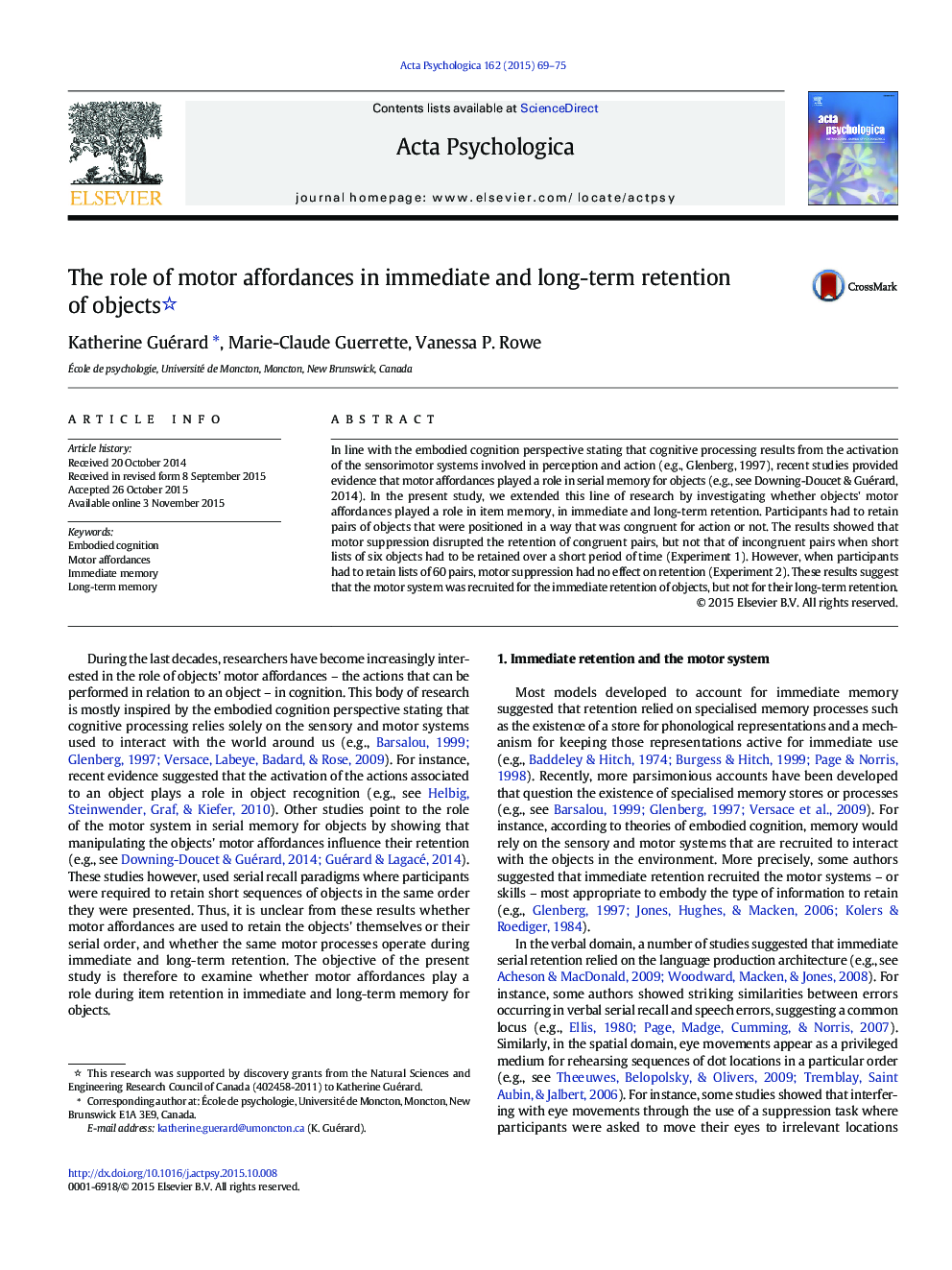| Article ID | Journal | Published Year | Pages | File Type |
|---|---|---|---|---|
| 919647 | Acta Psychologica | 2015 | 7 Pages |
•Motor suppression interfered with object recognition using an immediate memory task.•Motor suppression did not modulate object recognition in a long-term memory task.•Motor suppression had the same effect on memory for the active and passive objects.
In line with the embodied cognition perspective stating that cognitive processing results from the activation of the sensorimotor systems involved in perception and action (e.g., Glenberg, 1997), recent studies provided evidence that motor affordances played a role in serial memory for objects (e.g., see Downing-Doucet & Guérard, 2014). In the present study, we extended this line of research by investigating whether objects' motor affordances played a role in item memory, in immediate and long-term retention. Participants had to retain pairs of objects that were positioned in a way that was congruent for action or not. The results showed that motor suppression disrupted the retention of congruent pairs, but not that of incongruent pairs when short lists of six objects had to be retained over a short period of time (Experiment 1). However, when participants had to retain lists of 60 pairs, motor suppression had no effect on retention (Experiment 2). These results suggest that the motor system was recruited for the immediate retention of objects, but not for their long-term retention.
